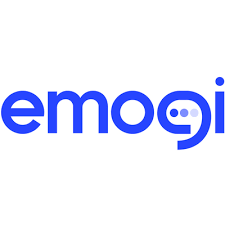Understand what matters to your customers – and show you care
 Authenticity in marketing. Illusion or reality? I am encouraged that companies are inching closer to creating bonafide, meaningful connections, and interactions with their consumers – a challenge that marketers have struggled with for decades. In my experience, to achieve genuine brand relationships, companies must be vocal and heartfelt about the social issues that are bringing people closer together today – impacting brands and consumers alike.
Authenticity in marketing. Illusion or reality? I am encouraged that companies are inching closer to creating bonafide, meaningful connections, and interactions with their consumers – a challenge that marketers have struggled with for decades. In my experience, to achieve genuine brand relationships, companies must be vocal and heartfelt about the social issues that are bringing people closer together today – impacting brands and consumers alike.
Companies both large and small are increasingly engaging in social conversations, linking their brand’s core purpose with societal issues, and subsequently earning authentic trust and loyalty from their customers – when done right. With the fast and critical rise of movements like #MeToo and March for Our Lives, consumers are starting to see brands as having a responsibility to help drive the conversation and communicate their social purpose, given their ability to reach the masses. In fact, 86 percent of consumers believe companies should take a stand on social issues and 64 percent said they are “very likely” to purchase a product based on that commitment.
Also Read: The World Beyond Social Media
So, where should brands begin?
Learn from the best
One of my favorite examples of true brand authenticity is P&G’s critically-acclaimed campaign, “The Talk,” featuring several black parents having “the talk” with their kids on what it means to be black in America. The campaign successfully showed P&G’s commitment to diversity and inclusion issues, while promoting organic conversations about racial bias in today’s society.
Seeking feedback from focus groups, stakeholders, employees, influencers and trusted individuals, P&G made multiple tweaks to ensure the film accurately illustrated an authentic representation, winning them a Grand Prix in Film at Cannes Lions. Understanding the full context of the customer experience, whether through traditional focus groups or more modern methods of data collection and analysis, is crucial in creating a sensitive narrative on social issues that resonate with the public.
Also Read: To Become a Tech Titan, You’ve Got to Build a Tribe
Beware of potential pitfalls
While successful campaigns like “The Talk” can help brands build an authentic relationship with customers, brands must first approach their stance on social conversations with caution. Even among well-intentioned campaigns, missteps are possible and can bring consequences that alienate part of the audience. Brands must ensure their message is delivered from the right spokesperson, through the right platforms, and presented at the right time.
When vocalizing a certain issue, a clear and aligned goal is crucial. Keep in mind: why does this cause matter to the company? How is the brand actively adding value to the communities affected by the issue? For example, with P&G, when parts of their campaign were met with skepticism, the company could point to its major diversity push over the last two and a half years to prove the authenticity of their intentions. If brands are going to speak out on certain issues, they cannot be complacent in their actions. Walking the talk is essential. After all, actions speak louder than words.
Also Read: Standing Out When Marketing Noise is Louder than Ever
Explore all the options
Brands can construct their social purpose campaign in a myriad of ways. The most common method, as seen with Coca Cola’s “Wonder of Us” or Stella’s Water.org campaigns, is to launch a 30-second ad to drive the conversation – and then promote it via social engagement, paid advertising, and traditional media.
But newer communication channels allow consumers to not only view brand campaigns, but also use them directly in their conversations. Today’s consumers live in messaging and speak in visual content. By understanding the context of these conversations and developing shareable content, such as in the form of branded stickers, brands can be a part of the social discussion like never before. Stickers and GIFs are gaining popularity in the messaging space, and by harnessing them to communicate an important social message, marketers are tapping into the future of enriched emotional connection between brands and consumers.
With these tech driven methods of engagement gaining momentum, I am excited about the future of socially-minded marketing. If I know one thing about marketing, it is that authentic loyalty is born of connecting brand identity with a larger purpose, proving commitment to that cause, and spreading the word in a way that resonates with customers. Consumers deeply care about the issues shaping society today, and those brands who are equally forthright about their values and actions will be rewarded with a bond that stands the test of time.
Also Read: How AI Can Be Used To Shape Your Customer Experience



